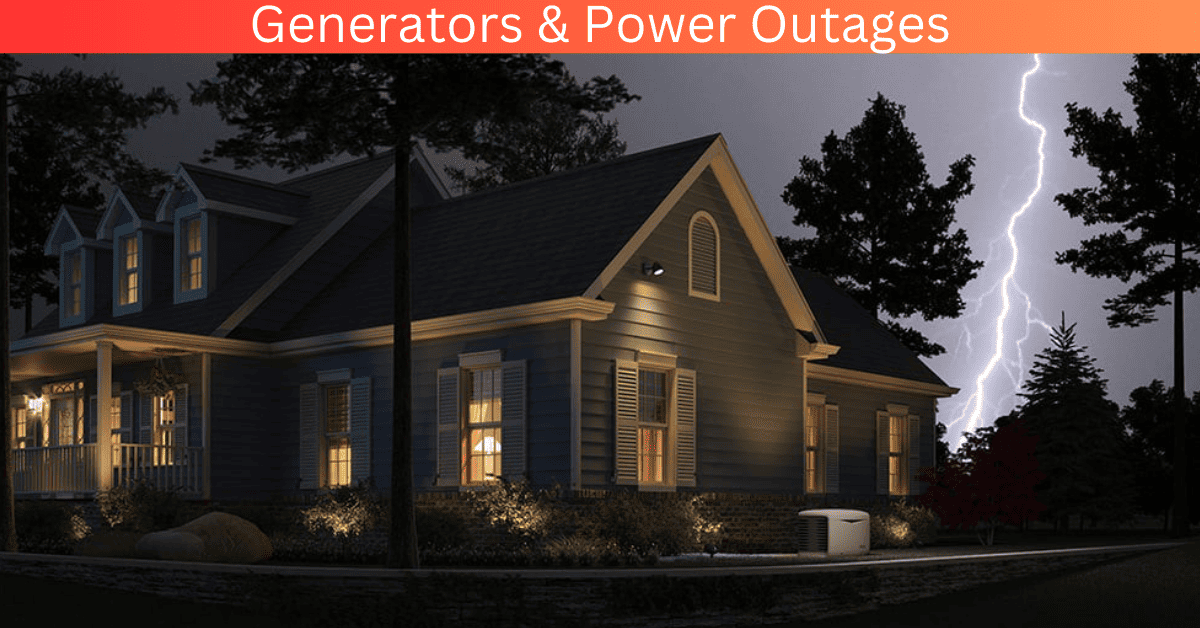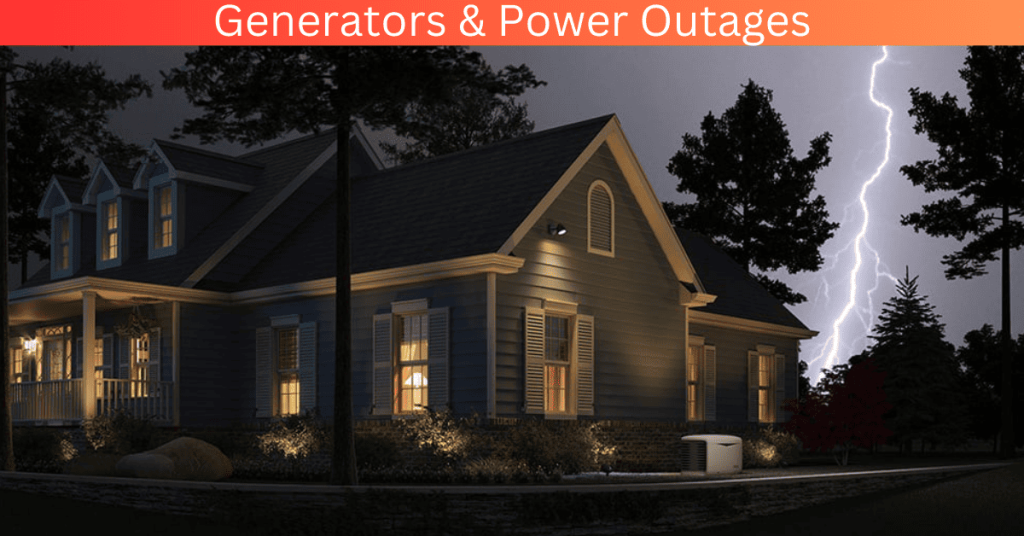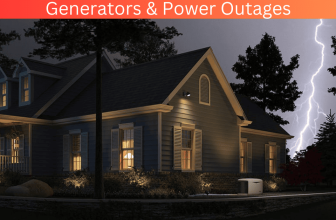
As the saying goes, ‘Knowledge is power.’
But what happens when that power goes out? It can be a frustrating and overwhelming experience, leaving us feeling powerless and vulnerable.
However, there is a solution that can help us conquer power outages and regain control: portable generators.
With a portable generator, you can have access to power even when the grid goes down. It’s like having a secret weapon in your arsenal, giving you the ability to take charge of any situation.
But with so many options on the market, how do you choose the right one? In this article, we’ll explore the importance of having a portable generator, the types available, and the factors to consider when choosing one.
We’ll also provide tips for safely using a portable generator and highlight some of the top models available today.
So let’s dive in and master the art of conquering power outages with portable generators.
Key Takeaways
- Portable generators provide access to power during power outages and are available in different types, including gasoline-powered, propane-powered, and solar-powered generators.
- Proper maintenance and cleaning of the equipment is crucial to prevent carbon monoxide poisoning, and generators should never be used indoors or in enclosed spaces.
- Prioritizing essential appliances, calculating total wattage of appliances, and managing fuel consumption are important when using portable generators.
- Securing portable generators with locks or chains, choosing a secured location, and installing GPS tracking devices or security cameras can prevent theft and ensure generator safety.

The Importance of Having a Portable Generator
Having a portable generator is like having a superhero in your garage, ready to save the day during power outages. It gives you the power to keep your household running smoothly even when the electricity grid fails.
It’s a must-have for anyone who wants to be ready for emergencies, especially those who live in areas with frequent power interruptions due to extreme weather conditions. Portable generators are versatile and easy to use. You can move them around your home to power up essential appliances like your refrigerator, air conditioner, or even your mobile devices.
They provide you with the peace of mind that you won’t be left in the dark when the power goes out. Plus, they’re not just for emergencies – you can use them for outdoor activities like camping or tailgating as well.
Now that we’ve established the importance of having a portable generator, let’s dive into the different types of portable generators available in the market. Each type has its own unique features, power output, and fuel efficiency, so it’s essential to choose one that meets your specific needs.
With the right type of portable generator, you’ll be ready to take on any power outage that comes your way.
Types of Portable Generators
There are a ton of different types of portable generators to choose from! The most common types are gasoline-powered generators, propane-powered generators, and solar-powered generators.
Gasoline-powered generators are the most widely used because they’re relatively inexpensive and easy to find. They’re also capable of producing a large amount of power, making them perfect for powering multiple appliances or tools simultaneously.
Propane-powered generators, on the other hand, are more fuel-efficient than gasoline-powered generators. They burn cleaner, which means they produce fewer emissions and are less harmful to the environment. They’re also quieter than gasoline-powered generators, making them ideal for use in residential areas or during outdoor activities where noise levels need to be kept to a minimum.
Lastly, solar-powered generators are becoming increasingly popular due to their eco-friendliness and portability. They’re the most expensive type of portable generator, but they’re also the most sustainable. They harness the power of the sun to produce electricity, making them perfect for outdoor activities or emergency situations where access to electricity is limited.
When choosing a portable generator, it’s important to consider factors such as power output, fuel efficiency, and noise levels. These factors will vary depending on your specific needs and intended use of the generator. By taking the time to research and compare different models, you can find the perfect portable generator to suit your needs and conquer any power outage that comes your way.
Factors to Consider When Choosing a Portable Generator
When you’re choosing a portable generator, it’s important to keep in mind certain factors that can impact its performance and suitability for your needs.
One crucial factor is the fuel type. There are generators that run on gasoline, propane, diesel, and even solar power. Consider the availability of the fuel type you choose, as well as its cost and durability.
Another factor to consider is the generator’s wattage output. This will determine how much power it can provide, and whether it can handle your specific needs. Take into account the appliances and electronics you plan to power with the generator, and choose one with a wattage output that matches or exceeds your requirements.
Lastly, look at the generator’s portability and ease of use. Consider how much it weighs, whether it has wheels, and if it has convenient features such as an electric starter or fuel gauge. Additionally, make sure it has sufficient safety features such as overload protection and automatic shut-off in case of a malfunction.
When considering these factors, you’ll be able to choose the portable generator that’s right for you. However, it’s important to know how to safely use a portable generator to prevent accidents and damage.
How to Safely Use a Portable Generator
To safely operate a portable generator, it’s crucial to regularly maintain and clean the equipment, as neglect can lead to a high risk of carbon monoxide poisoning, which accounts for over 70% of generator-related deaths. Proper ventilation is also important, and generators should never be used indoors or in enclosed spaces, such as garages or basements.
Additionally, it’s important to keep the generator at a safe distance from your home and any windows or doors, to prevent exhaust from entering your home.
Here are five tips to help you safely use your portable generator:
- Always read and follow the manufacturer’s instructions carefully.
- Use a heavy-duty extension cord that is rated for outdoor use and can handle the power output of your generator.
- Only refuel the generator when it’s turned off and has cooled down.
- Turn off all appliances and electronics before starting the generator, and plug them in one at a time after the generator is running.
- Install carbon monoxide detectors in your home to alert you if levels become dangerous.
By following these tips, you can safely operate your portable generator and avoid the risks associated with carbon monoxide poisoning. In the next section, we’ll take a look at some of the top portable generators on the market, so you can make an informed decision when choosing the right one for your needs.
Top Portable Generators on the Market
If you’re looking for a reliable source of electricity for your outdoor adventures or emergency backup, you’ll want to check out the top portable generators currently available on the market. These generators are not only convenient but also efficient, allowing you to power up your devices and appliances in a matter of minutes. With so many options to choose from, it can be overwhelming to decide which one to purchase. To make it easier for you, we’ve compiled a list of the top portable generators based on their performance, durability, and affordability.
Here are the top portable generators on the market:
| Generator | Power Output | Fuel Type |
|---|---|---|
| Honda EU2200i | 2200 watts | Gasoline |
| Westinghouse iGen4500DF | 4500 watts | Dual Fuel (Gasoline and Propane) |
| Generac GP2200i | 2200 watts | Gasoline |
The Honda EU2200i is a popular choice for its quiet operation, fuel efficiency, and reliability. The Westinghouse iGen4500DF is a versatile option that allows you to switch between gasoline and propane, making it ideal for long-term use during power outages. The Generac GP2200i is a budget-friendly option that still delivers high-quality performance.
These top portable generators are a great investment for anyone who wants to have a reliable source of power during outdoor adventures or power outages. However, it’s important to use them safely and properly to avoid any accidents. In the next section, we’ll provide some tips on how to use a portable generator during a power outage.
Tips for Using a Portable Generator During a Power Outage
So, we’ve got our hands on a portable generator for power outages. But how do we make the most out of it?
Here are some tips we’ve learned along the way. First, prioritize essential appliances to power during an outage. Second, manage fuel consumption by turning off the generator when not in use and using energy-efficient appliances. And finally, protect your investment from theft by securing it with a lock or chain.
Prioritizing Essential Appliances
When prioritizing your essential appliances during a power outage, you’ll want to focus on the ones that consume the most energy. For instance, refrigerators can use up to 600 watts per hour, making them a top priority.
Other high-energy devices that you should consider include heaters, air conditioners, and pumps. However, you’ll need to be careful not to overload your portable generator.
It’s essential to calculate the total wattage of the appliances you want to power and ensure that it doesn’t surpass the generator’s maximum wattage. By prioritizing your essential appliances, you can ensure that you have the right amount of power to keep your home running smoothly during an outage.
With that being said, managing fuel consumption is crucial to ensure that you have enough fuel to keep your generator running for as long as possible.
Managing Fuel Consumption
To make sure we have enough fuel to keep our essential appliances running during a power outage, it’s important to manage our fuel consumption carefully. One way to do this is by running the generator only when necessary.
We can start by identifying the appliances we need to power and their wattage requirements. From there, we can prioritize their use based on our needs. For example, we can use the generator to power the refrigerator for a few hours, then switch it off and use the stored energy to run the lights and charge our devices.
Another way to manage our fuel consumption is by using energy-efficient appliances. LED lights, for instance, consume less energy than traditional incandescent bulbs, and a laptop or tablet uses less power than a desktop computer. By choosing energy-efficient appliances and using them only when necessary, we can extend the life of our fuel supply and ensure that we have enough energy to last through the power outage.
With these fuel management strategies in mind, we can now focus on protecting our generators from theft.
Protecting Your Generator from Theft
One effective strategy for safeguarding your generator against theft is by placing it in a secured location and using a heavy-duty chain and lock to anchor it to a sturdy object. This will deter potential thieves from attempting to take your generator, as they’ll need to spend more time and effort to break the lock and chain.
Additionally, it’s important to ensure that the location you choose isn’t easily accessible to outsiders, and that it’s well-lit to minimize the risk of theft.
To further protect your generator from theft, it’s recommended to invest in a GPS tracking device. This’ll allow you to track the location of your generator in real-time and provide you with alerts if it’s moved without your permission.
Another option is to install a security camera in the area where your generator is located, as this’ll help you identify any potential thieves and provide evidence to law enforcement if necessary. By taking these extra precautions, you can enjoy the peace of mind that comes with knowing your generator is protected and secure.
Frequently Asked Questions
How long can a portable generator run continuously?
Portable generators can run continuously for up to 8-12 hours, depending on the size of the generator and the amount of fuel it can hold. We can maximize the generator’s runtime by using energy-efficient appliances and turning off unnecessary electronics.
Can a portable generator power an entire house during a power outage?
Yes, a portable generator can power an entire house during a power outage, as long as it has enough wattage to handle the load. We’ve successfully used ours for this purpose and it gave us a sense of empowerment.
How often should a portable generator be serviced or maintained?
Keeping our portable generator in top shape is crucial for uninterrupted power supply during outages. We schedule maintenance every six months, checking oil levels, air filters, and fuel quality. Neglecting upkeep can lead to costly repairs or worse, a breakdown when we need it most.
Are there any safety regulations or guidelines for storing fuel for a portable generator?
When storing fuel for our portable generator, we follow safety guidelines such as keeping it in a cool, dry place away from any heat sources or open flames. We also keep it in an approved container and label it properly.
How loud are portable generators and are there any noise restrictions in certain areas?
Portable generators can be loud, with noise levels ranging from 50-100 decibels depending on the model. Some areas have noise restrictions, so it’s important to check local laws before using a generator.
Conclusion
So, there you have it – portable generators are the ultimate savior during power outages. They provide a reliable source of power to keep your home or business running smoothly.
They come in different types, sizes, and power capacities, making it crucial to choose the right one that best suits your needs. In conclusion, owning a portable generator is like having a superhero by your side during a power outage.
It gives you peace of mind, ensures safety, and enables you to carry on with your daily activities without any interruption. So, invest in a portable generator today and never be caught off guard during a power outage again.





